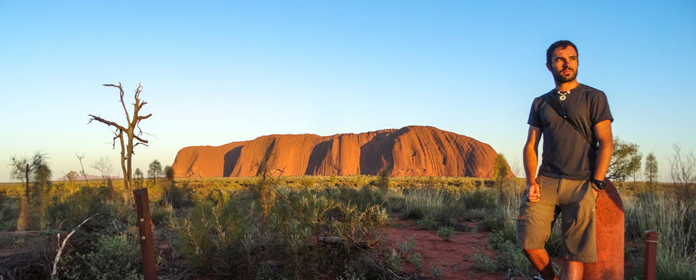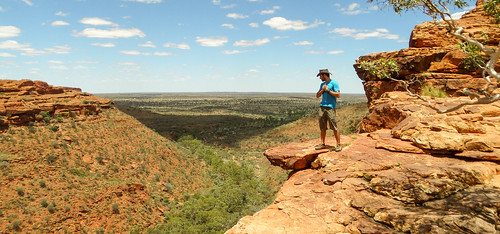"During the doctorate I appreciated all the hours of laboratory from the degree program"
Javier Cotín (Bio 05) has developed ornithology and conservation projects in a dozen countries. If he gets the visa from work now he will do it in the USA.

PHOTO: Courtesy
His is a story of constant struggle to achieve his goal: to dedicate himself to ornithology and to know different species all over the planet. A goal that he has successfully achieved, having already participated in several projects in Spain, Portugal, United Kingdom, Norway, Galapagos, Australia, Seychelles, Costa Rica, etc.
From an international perspective, he details in this interview his vision on the work of environmental biologists, their challenges and upcoming goals.
- What has your training as a biologist at the University of Navarra given you in the development of your professional degree program ?
The University of Navarra has a great academic level and has trained us rigorously. The difference was especially noticeable compared to other European universities. Our level of knowledge was superior.
- During the degree program, did you already focus on environmental issues?
Since I was 10 years old I knew that I was passionate about birds and that I wanted to dedicate my life to their study. So from day one of starting degree program I chose all environmental subjects. Although I always wanted to spend the day in the field, I never neglected laboratory. Many times we had to reanalyze samples. The laboratory was a very important part of the "boot" or field biologist. I appreciated this during doctorate, when after the months of work in the field with the birds we spent many months at laboratory doing heavy metal and stable isotope analysis.
- Did your professional experience begin with your internship and when did you first participate in an international project ?
Actually, at the age of 16 I already participated in a study of migratory birds in the Ebro Delta National Park and Doñana National Park. I made the international leap in 2003 with the internship at business - thanks to my tutor, Professor Rafael Miranda-. I did them in Fair Isle, a small island lost between the Shetland and Orkney archipelago, where I was able to spend a month working in the seabird colonies. An unforgettable experience without a doubt. Then I continued with the erasmus in Tromsø, Norway, where I did the work of Master's Degree on the migratory patron saint of the Bluethroat in the Dividalen National Park.
- What have been your main projects?
After the licentiate degree I did the doctorate at the University of Barcelona, using birds as bioindicators of pollution in aquatic and terrestrial ecosystems. I continued with conservation projects and research in different parts of the planet -Europe, Australia, Seychelles, Costa Rica, Galapagos Islands, etc-, both for universities, NGOs and private companies. My favorite projects have been the study of the Forty-spotted Parthalot in Tasmania for the Australian National University (for which we climbed with ropes and harnesses eucalyptus trees over 70 meters high) and the work with Galapagos Swallow, Flightless Cormorant and Galapagos Penguin, for the Charles Darwin Research Station, in the archipelago of the Galapagos Islands.
Just this month I just finished a work as an ornithological expert and naturalist for Lindblad Expeditions and National Geographic. I am now waiting for a visa to move to Colorado (USA) to work as coordinator for ornithological projects in an organization based in that country, but that works, researches and organizes ornithological events in Canada and in several countries in Central and South America. What I am really passionate about is the conservation and applied research of endangered birds.
- Is the profile environmental profile a future or a present for biologists?
The environmental profile is very vocational and has never been easy, especially today. Quite a few of my friends, passionate as I am about the countryside and its wonders, cannot devote themselves fully to it. Unfortunately, many projects abound that carry out the work of research by means of volunteers, in which many times not even travel expenses are covered. I have seen many offers addressed to volunteers in spite of asking for a high profile of the scientist (several years of experience, specific knowledge, etc.). Despite all the difficulties, the work of biologists is both exciting and necessary, and there is nothing better than working on what you are really passionate about.
- How do you see your professional future in the short/medium term deadline?
As I was saying, I'm waiting to go to the United States to continue working in bird conservation and research -although I still have to get a visa-, and to continue exploring the most remote places on planet Earth with Lindblad Expeditions and National Geographic. In a few years I would like to be professor at a university. Especially at my own, the University of Navarra. Once I have traveled the planet Earth, learning about the wildlife and birds that live on it, I could think of nothing better than to help in the training of the next generations of biologists at the University where I myself learned.

